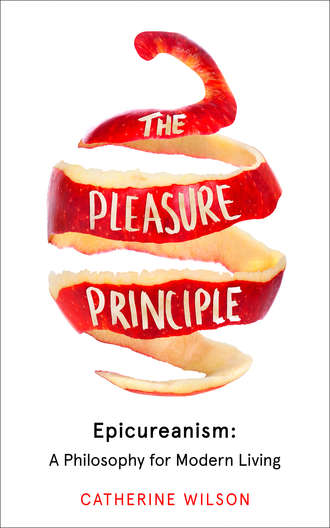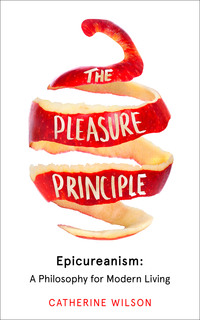
Полная версия
How to Be an Epicurean
If you think with Epicurus that pleasure is our ‘first and only good’, you are not in the company of the wise, at least not in the tradition of Western philosophy. The great philosophers have denigrated and warned against pleasure from time immemorial. For instance:
Plato: ‘Pleasure is the greatest incentive to evil.’
Aristotle: ‘Most pleasures are bad.’
Epictetus: ‘It is the nature of the wise to resist pleasure.’
Kant: ‘Whoever wants to be quite happy must remain indifferent towards pain and pleasure.’
To be fair, these quotes are taken out of context, and in at least some of these writers, you will find defences of pleasure suitably qualified. For example, the pleasures of heaven may be deemed desirable, and the pursuit of moral virtue may be deemed to give rise to an acceptable form of pleasure. But sensory pleasure and especially sexual pleasure are typically hedged with warnings from moral philosophers and theologians. That, one often feels, is their job. Philosophers may agree that animals in general pursue pleasure, but the point is often made that human beings are superior to other animals in being able to repress their desires. From this it is thought to follow that they should practise their superiority by doing so. Ascetic routines such as fasting, being cold and wearing uncomfortable garments are associated in many cultures with holiness and a status above that of the ordinary person.
What are the arguments against pleasure? They are rarely stated explicitly, indicating perhaps that many humans have a deeply rooted ambivalence to pleasure that needs only to be refreshed from time to time by philosophical and religious reminders. We all seem to know intuitively that pleasure and danger are associated, and that sexual pleasure is the most dangerous of all pleasures, far exceeding in this regard the dangers of overindulgence in food, or drink, or too much enjoyment of art, music, dance and travel. In fact, these other activities are sometimes tainted by the association of other pleasures with sexual pleasure. Even Epicurean theory comes with its own set of warnings about pleasure.
Prudence and its Limits
To the question ‘Should we all do what we feel most like doing at any given moment, since our liking for pleasure and our aversion to pain are natural and fundamental?’ the Epicurean answer is, ‘Absolutely Not.’ To explain this answer, I’ll discuss first what philosophers term self-regarding actions, i.e., actions that have little or no effect on anyone else but a noticeable effect on the self. The next chapter will discuss ‘other-regarding’ actions from an Epicurean perspective.
Where self-regarding actions are concerned, Epicurus reminds us that the pursuit of small pleasures now can bring on severe pains later, while the endurance of certain pains now can bring on more pleasures down the road. I need to choose and avoid prudentially, in view of the long-term effects of actions that are readily foreseeable. It is sensible to undergo the mild pain of having one’s teeth scraped to prevent the major troubles of having them rot and fall out later and to get the prick of a vaccination to escape a disabling disease. More painful and tiring medical interventions may be justified by their positive impact on functioning once the wounds have healed. Limiting vacation expenses now to ensure a comfortable old age and reducing the consumption of delicious pastries to prevent diabetes in middle age is, according to the Epicurean, rational forward-thinking self-care. Refusing to think about longer-term consequences may be pleasant now, but the long-term consequences of failing to think about those consequences can be very painful.
Конец ознакомительного фрагмента.
Текст предоставлен ООО «ЛитРес».
Прочитайте эту книгу целиком, купив полную легальную версию на ЛитРес.
Безопасно оплатить книгу можно банковской картой Visa, MasterCard, Maestro, со счета мобильного телефона, с платежного терминала, в салоне МТС или Связной, через PayPal, WebMoney, Яндекс.Деньги, QIWI Кошелек, бонусными картами или другим удобным Вам способом.



